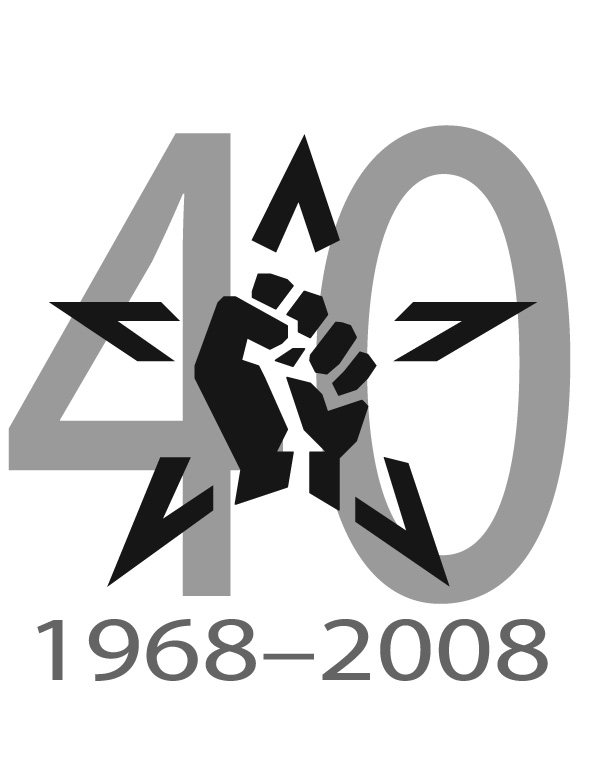In the first of a series of articles to mark the 40th anniversary of the CPBML by looking at the past four decades through the eyes of Workers and its predecessor, The Worker, we look at the epic 1970s struggle against state control of the unions...
The smashing of the Industrial Relations Act
WORKERS, JAN 2008 ISSUE

In 1970 a lead article in our Party newspaper The Worker gave an early warning against the coming corporate state. We reproduce the article below. By way of introduction, the Labour Party had started the attack on our trade unions with the Wilson government's "In Place of Strife", a 1969 white paper introduced by employment minister Barbara Castle, which proposed to curb the power of the unions but was never passed into law.
In 1971 the Conservative government led by Edward Heath passed the Industrial Relations Act, facing our unions with a fundamental challenge. Heath set up the National Industrial Relations Court (NIRC) and sought to impose state registration of unions, the power to impose binding procedures, punitive fines and sequestration of union assets.
From the first, the Amalgamated Union of Engineering Workers led the working class's struggle against the act. Its fight stood out as a political battle. At the 1971 TUC, the AUEW put a motion that "instructed" all trade unions not to register under the Act and to "take measures to remove themselves from the provisional register". It was passed by 5,625,000 votes to 4,500,000. But only the AUEW repudiated Heath's Act in practice and refused to acknowledge the Court's existence.
On 26 January 1971, the union's Executive Committee voted for strike action against the act, calling on all members to act. On 4 February 1971, the AUEW National Committee decided by 63 votes to 5 to call for a series of one-day strikes. On 26 February 1971, more than 150,000 trade unionists marched in London against the Act, a demonstration that the government tried to ignore. On 1 March, two million workers struck for the day, on 18 March, three million.

AUEW demonstration in 1973 against the Industrial Relations Act, Tower Hill, London, addressed by Reg Birch. The working class rolled back "In Place of Strife" and the Industrial Relations Act between 1968 and 1974, but those involved knew that the role of the AUEW in its steadfastness, led by Reg Birch at key points, was so important. He cut the tools that others wielded. It was this that broke Heath, not the subsequent forms of action that took place.
On 1 May 1973, the AUEW called a political strike against the wage freeze. In 1974, the incoming Labour government imposed the Social Contract to cut back real wages. In April 1974, the AUEW launched an overtime ban, and in May, strikes. True to type, the Labour government had left the whole apparatus of Heath's Industrial Relations Act in place, including the National Industrial Relations Act. When union funds were going to be sequestrated in 1974, the AUEW declared that being sequestrated meant that everybody stopped work.
Thousands of engineers rallied to the defence of the union, with hundreds gathering within an hour to stop police and bailiffs entering the union's head office. Reg Birch addressed the union members there, and warned against having any truck with the Social Contract, saying, "Unions which sign a contract have to police it."
The Worker, December 1970, lead article, headlined "Kill the Bill – Smash capitalism!", and subtitled: "Ruling class's Industrial Relations Bill attacks entire working class":
"The present Government's Bill attacking trade unionism, like the previous Government's 'In Place of Strife', proves that the capitalist class is in trouble. Where formerly the capitalists could live with trade unions – even if they found them a thorn in their flesh – now they are demanding state intervention to crush trade unions.
"This represents a major step in the move from bourgeois democracy to the corporate state. It is a step dictated by the weakness of British capitalism, not by its strength. "But that the ruling class would consider so rash a step is also proof that the trade unions have been failing the working class. They have been content to live with capitalism. They have tried to stand still and have inevitably been pushed back. They have betrayed the Tolpuddle martyrs and all the other workers who have fought and suffered for the realisation of working class strength through organisation.
"Now the truce is over. We in the CPB(ML) welcome the forthcoming struggle. Neither we nor the workers whose party we are have ever feared conflict.
"We will not have Tory legislation or Labour legislation against workers. Nor will we have the TUC General Council acting as a semi-governmental body to deal with such legislation.
"And certainly our Party does not believe that the TUC General Council nor the Labour Party intend to put up a real fight on this issue. Workers will not be fooled by the shadow-boxing of the Shadow Cabinet. Barbara Castle, who is supposed to be leading the Labour resistance, paved the way for the Tory Bill with her own attack on the trade unions. In the Labour policy for industrial relations which she drafted she openly supported state intervention. 'The state,' she said, 'had to act at times to contain the disruptive consequences of the struggle for those not immediately affected.' This is exactly the attitude of Victor Feather [then TUC General Secretary] who at the TUC Conference stated that 'one man's strike was another man's lay-off.'
"We will have no such 'leaders' betraying the struggle before it even begins. We consider a 'token strike' as calling for the most timid response from the working class, showing no confidence in their courage and tenacity."